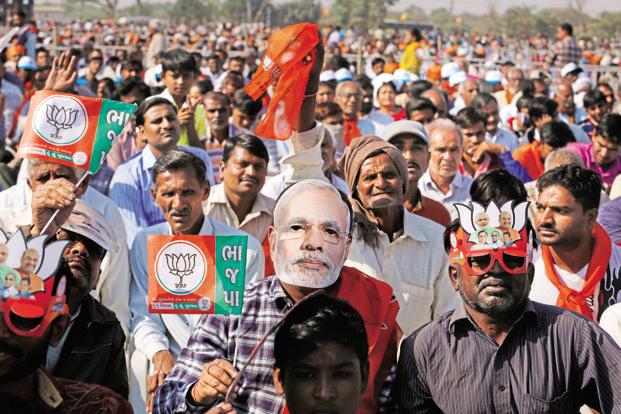NEW DELHI: The upcoming elections to 58 seats in Rajya Sabha is likely to result in seat gain for BJP in the Upper House, where it has been encountering opposition for its legislation from the Congress, over the last three years.
The increase in its tally notwithstanding, the ruling NDA is, however, likely to remain in a minority in the 245-member Upper house.
Biennial elections to 58 Rajya Sabha seats in 16 states will be held on March 23. The term of the members representing these seats is going to expire in April-May this year.
The seats include 10 from UP, six each from Maharashtra and Bihar, five each from West Bengal and Madhya Pradesh, four each from Gujarat and Karnataka, three each from Telengana, Odisha, Andhra Pradesh and Rajasthan, two from Jharkhand and one each from Chhattisgarh, Himachal Pradesh, Uttarakhand and Haryana.
The Commission will also hold by-election to one Rajya Sabha seat of Kerala on the same date. The seat has fallen vacant, following the resignation of Veerendra Kumar last year before the expiration of his term of office.
Political observers said the elections to 58 Rajya Sabha seats, which constitute around 22 per cent of the total strength of the Upper House, is crucial for lending greater strength to the BJP-led NDA Government in the Council of states, for pushing through its legislative agenda.
Of these 58 seats, Congress currently holds 14 seats, while BJP holds 18 seats. However, considering that the states going for the elections include those like Andhra Pradesh, Haryana, Maharashtra, Rajasthan, Uttar Pradesh and Uttarakhand, where power has changed hands over the last four years, could lead to a significant boost for BJP in the Upper House.
BJP’s victories in Uttar Pradesh, Maharashtra, and Rajasthan should translate into substantial seat gains in the Rajya Sabha election.
Similarly, the Congress and the Uttar Pradesh-based Samajwadi Party (six seats from UP currently) will see a reduction in their seat share in the Rajya Sabha.
This round of biennial polls is likely to see the strength of the Bharatiya Janata Party (BJP) and its allies increase in the Upper House by 15 seats. While BJP alone is expected to gain around ten seats, its allies , the Telugu Desam party, the Akali Dal and tyjhe Shiv Sena are likely to gain around 5 seats.
A sizeable gains for BJP in these polls will come from Uttar Pradesh, where it secured over two thirds majority in the 2017 Assembly elections. On the other hand, the Samajwadi party is likely to see sharp reduction in their seats from the present six.
In Maharashtra, Rajasthan and Uttarakhand too, BJP is likely to witness a rise in the number of its seats. At present, the BJP has 58 members in the Rajya Sabha, while the Congress has 54 members.
After March 23 Biennial polls to the Rajya Sabha, BJP is likely to take its overall tally in the Rajya Sabha to 68. In addition, allies of BJP like the Akali Dal, Shiv Sena, and Telugu Desam Party are likely to gain some seats in these elections.
The increase in the number of seats of BJP in Rajya Sabha elections is likely to increase its share in the total number of seats to around 27 per cent. If one adds the seats likely to be gained by BJP’s allies, the total seat share of NDA in the Rajya Sabha is likely to be 35 per cent of the total strength of the upper House.
However, the increase in its tally in the Upper House will not change the NDA’s minority status in Rajya Sabha. The NDA will continue to be short of the majority mark of 123 seats in the 245-member Rajya Sabha.
Political observers feel that BJP still has a long way to go before it can push through its legislative agenda in the upper House, as it has been able to do in the Lower house.
The lack of a majority status in the Upper House for BJP is also likely to prove a hindrance for Prime Minister Narendra Modi’s idea of simultaneous Lok Sabha and Assembly polls.
The PM has time and again advocated the need for holding simultaneous polls to the Lok Sabha and the state Assemblies. In January this year, he had proposed that feasibility of holding simultaneous elections should be studied.
Three months later, during his interaction with the NITI Aayog in April, the Prime Minister again proposed this idea in a meeting, attended by Chief Ministers of several states. However, this warrants amendments in the Constitution. (agencies)
Trending Now
E-Paper


